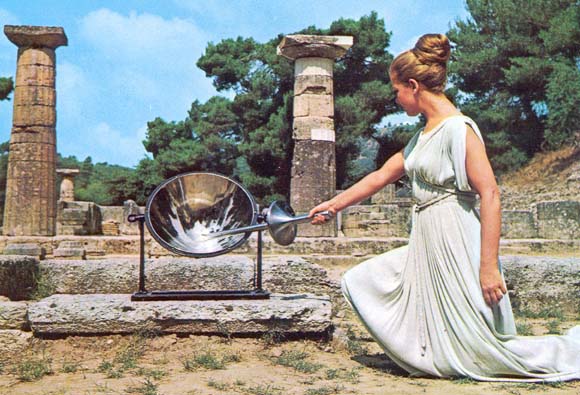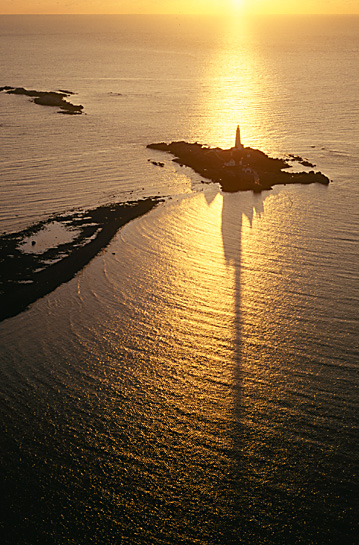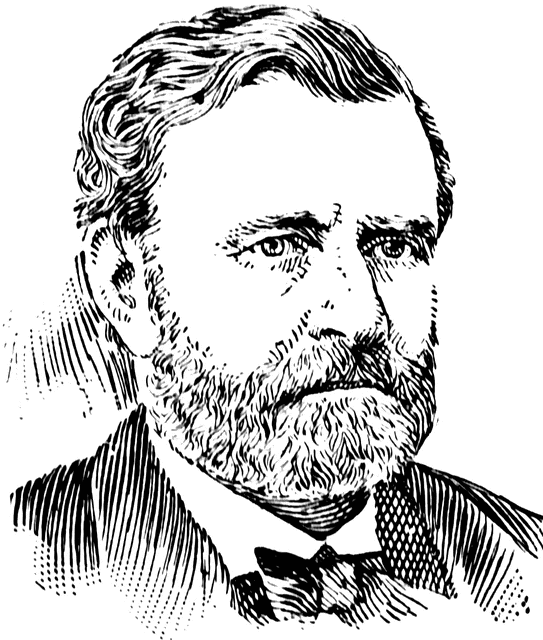
July 23

776BC The first Olympic Games open in Olympia. The foot race is won by Coroibos, a cook.

0636 Arabs gain control of most of Palestine from the Byzantine Empire.
1540 Thomas Cromwell is beheaded on Tower Hill in England.

Teste di Medusa by Caravaggio
1599 Artist Caravaggio recieves his first public commission for paintings.
1627 Sir George Calvert arrives in Newfoundland to develop his land grant.
1637 King Charles of England hands over the American colony of Massachusetts to Sir Fernando Gorges, one of the founders of the Council of New England.
1664 Wealthy, non-church members in Massachusetts are given the right to vote.

1715 The first lighthouse in America is authorized for construction at Little Brewster Island, Massachusetts.
1793 The French garrison at Mainz, Germany, fell to the Prussians.
1803 Robert Emmett's insurrection in Dublin takes place as Irish patriots throughout the country rebel against Union with Great Britain.
1827 The first swimming school in the U.S. opens in Boston, MA., and the first lesson proves interesting: A student is suspended from a pole on a rope while 'learning the use of his limbs.' Famous people who were former students: John Quincy Adams, James Audubon.

1829 The 'typographer' the predecessor of the modern typewriter, is patented by William A. Burt of Mount Vernon, Michigan. Note: The typographer was a heavy machine made almost entirely of wood. Despite a neat and legible print, Burt was never able to write with his machine faster than he could with a pen.

By Gobrecht
1844 Death: Christian Gobrecht, 4th US chief engraver.

Thoreau
1848 Protesting slavery as well as the United States' involvement in the Mexican War, author Henry David Thoreau refuses to pay his $1 poll tax and is casually arrested by a friend and put into jail. That night, a relative comes by the jail and paids Thoreau's poll tax for him. When he wakes in the morning, he is told he can leave. Thoreau angrily objects to this, and the constable threatens to use force to remove him. His written account of the experience is later read by Leo Tolstoi, and then by the young Mahatma Gandhi (Mohandas K. Gandhi), and it persuades them to advocate civil disobedience.
1849 German rebels in Baden capitulate to the Prussians.
1852 The first interment in the US National Cemetery at Presidio is made.
1868 The 14th Amendment is ratified, granting citizenship to African Americans.
1880 The first commercial hydroelectric power planet begins, at Grand Rapids, Michigan.

1885 Death: Ulysses S. Grant, the 18th president of the United States, dies at the age of 63 of throat cancer, in Mount McGregor, New York and is entombed in Riverside Park, New York.
1886 Steve Brodie, a New York saloonkeeper, claims to have made a daredevil plunge from the Brooklyn Bridge into the East River.
1888 Birth: Dr. Milan Stoyadinovich, in Serbia, fascist Yugoslavia PM (1935-39).

1888 Birth: Gluyas Williams, in San Francisco, cartoonist (Fellows Citizen).
1892 Birth: Haile Selassie, emperor of Ethiopia (1930-74), founder of the Rastafarian religion.
1894 Japanese troops take over the Korean imperial palace.

1903 In Detroit, the Ford Motor Company sells its first motor car, The Ford Model A, which costs $850 and is able to reach a speed of 48 km/h or 30mph.
1904 The ice cream cone is invented by Charles E. Menches during the Louisiana Purchase Exposition in St. Louis, MO.
1906 Birth: Marston Bates, American zoologist, author (The Nature of Natural History).
1914 WW1: Austria-Hungary presents a warlike, 48-hour ultimatum to the Serbian government, demanding a virtual protectorate over Serbia. Serbia accepts all but one of the demands, but still its response is unsatisfactory to Austria-Hungary.
1920 Kenya becomes a British crown colony.

1931 Birth: Arata Isozaki, architect.
1931 Ashmore and Cartier Islands in the Indian Ocean are transferred to Australia.

1931 France announces that it simply can't afford to send a team to the 1932 Los Angeles Olympics.
1933 The Board of Deputies of British Jews rejects a proposal to join the anti-Nazi boycott. (Edelheit)

1933 Birth: Lord Rogers, architect.
1935 Lithuanian police in Kovno suppress the Jewish anti-Nazi boycott.
1936 Representatives of Britain, France and Belgium meet in London to discuss German violation of the Locarno Pact in the Rhineland.
1938 The first federal game preserve, some 2,000 acres of land located in Utah, is approved by the US Fish and Wildlife Service.
1938 Holocaust: A new German law decrees that as of January 1, 1939, Jews will be required to carry special identification cards, which they must obtain from the local police. (Persecution)
1939 WW2: Britain and France agree to Russia's proposal that military staff talks be held at once to spell out specifically how Hitler's armies are to be met by the three nations (See August 5). (Shirer I)

Winifred Wagner and Hitler
1940 WW2: Hitler travels to Bayreuth to attend a performance of Wagner's Die Gotterdammerung. A week later he will issue orders for the invasion of Great Britain and a few days later plans are presented for the invasion of the Soviet Union. Albert Speer and a number of historians believe Wagner provided the inspiration for this crucial point in WWII. (Waite) Note: Neither source, Speer or Waite, is unimpeachable; the speculation above is presented for what it is worth. (See August 1 and August 5)
1940 WW2: A Czechoslovakian provisional government is formed in London. Edouard Benes is recognized by the British as president.
1940 WW2: The Local Defence Volunteers are renamed the Home Guard by Winston Churchill.

1942 Holocaust: The death camp at Treblinka goes into operation. Total victims: 800,000; survivors: under 40. Note: A few days later, SS Major Christian Wirth is named inspector of the death camps at Belzec, Sobibor and Treblinka. (See Dec 8)
1944 Holocaust: Soviet forces enter Majdanek. The SS now begins accelerating evacuations from Auschwitz, yet deportation trains from France and Belgium, as well as Radom, continue to be sent to Auschwitz. (Atlas)
1944 Holocaust: 1,700 Jews from the island of Rhodes and 120 from the island of Kos are sent to Auschwitz and its gas chambers, as more and more "death marches" away from the camp are ordered. (Atlas)
1944 WW2: US forces invade Japanese-held Tinian.
1946 Canada decides to accept 4,500 Polish ex-servicemen, Allied soldiers, provided they are unmarried and will work on Canadian farms for two years and not "wage propaganda."
1947 The first US Navy air squadron of jets is formed at Quonset Point, Rhode Island.
1947 US President Harry S. Truman made the first Presidential surprise visit to Capitol Hill since 1789. 'Give 'Em Hell Harry' slipped into the Senate seat that he formerly used when representing his home state of Missouri.

1951 Death: Henri Philippe Petain, in prison; born in Cauch-a-la-Tour on 24 April 1856. He joined the French Army in 1876 and attended the St Cyr Military School and spent many years as an infantry officer and an army instructor. After studying the Russo-Japanese War (1904-05). He was promoted to Field Marshal two weeks after World War I (WWI) armistice, and remained active in French military affairs and served as War Minister in 1934. In 1940, aged 83, Petain agreed to head the Vichy government in occupied France. Petain fled to Switzerland after the Normandy landings but when he returned in April, 1945, he was arrested and charged with treason. Petain was found guilty and sentenced to death for aiding the German enemy. The sentence was later commuted to life imprisonment.
1952 A bloodless nationalist revolution overthrows the Egyptian monarchy, King Farouk I, and transforms Egypt into a republic. The nationalist movement is led by Colonel Gamal Abdel Nasser (also spelled Gamal Abd El-Nasser), who four years later will become president until his death in 1970. Nasser will nationalise the Suez Canal, create the short-lived United Arab Republic, and promote socialist policies in Egypt.

1956 Lieutenant Colonel Frank K. Everest becomes the fastest man alive when his experimental rocket plane Bell X-2 reaches the speed of Mach 2.87, almost three times the speed of sound (about 1,900 mph or 3,040 kph). Built by Bell Aircraft Company, the bullet-shaped research plane is dropped from a much bigger airplane to allow it to go higher and faster.
1958 The atomic powered submarine Nautilus departs from Pearl Harbor, Hawaii, under orders to conduct "Operation Sunshine." Its mission is to be the first vessel to cross the north pole by ship. (See Aug 3)
1962 The Telstar communications satellite sends the first live TV broadcast to Europe. The satellite is used to send TV programs between the United States and Europe.
1962 The Geneva Conference on Laos forbids a United States invasion of eastern Laos.
1964 An Egyptian munition ship, Star of Alexandria, explodes at the dockside in Bone, Algeria. 100 die, 160 are injured, and $20 million damage is caused.
1967 One of the worst riots in US history breaks out on 12th Street in the heart of Detroit's predominantly African American inner city. By the time it is quelled four days later by 7,000 National Guard and US Army troops, 43 people were dead, 2,000 injured, 442 fires were set.
1968 A race riot occurs in Cleveland, 11 including 3 police are killed.
1968 The first Palestine Liberation Organisation (PLO) hijacking of an El Al plane.
1972 ERTS 1 (Earth Resources Technology Satellite), later called LANDSAT, is launched to start its multi-spectral scans of Earth.

Cox
1973 Watergate Special prosecutor Archibald Cox serves subpoenas on the White House after President Nixon refuses to turn over tapes and documents.
1974 The Greek military dictatorship collapses.
1977 A jury in Washington, DC, convicts 12 Hanafi Muslims of charges stemming from the hostage siege at three buildings the previous March.
1978 The Israeli cabinet rejects President Sadat's call for a return of two Sinai areas.

1980 Billy Carter admits to being a paid agent of Libya.

1980 The River of No Return Wilderness Area is designated by Jimmy Carter.
1987 President Reagan names a 13-member national commission on AIDS.
1991 G7.5: The Soviet government applies for full membership to the IMF and World Bank after the Group of Seven recommend a limited 'special association' for the USSR.
1995 In a new get-tough approach, the United Nations orders the first combat unit from its rapid reaction force to Sarajevo to take out any rebel Serb guns that fired at United Nations (UN) peacekeepers.

1995 Two astronomers, Alan Hale in New Mexico and Thomas Bopp in Arizona, almost simultaneouly discover a comet. It is later named after them, Hale-Bopp.
1998 A second grand jury impaneled by independent counsel Kenneth Starr begins hearing testimony about President Clinton's alleged affair with former White House intern Monica Lewinsky.
1998 US scientists at the University of Hawaii turn out more than 50 "carbon-copy" mice, with a cloning technique.
1999 Death: Morocco's King Hassan II, an influential leader in the Arab world, at the age of 70.
2004

Visit:




 Visit:
Visit:

Click Here to email the History: One Day At a Time webmaster.